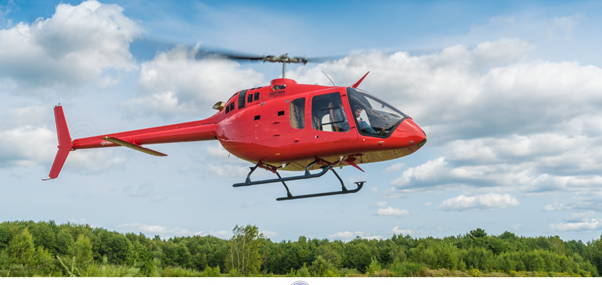Bell highlights sustainable rotorcraft manufacture


Helicopter OEM Bell has underlined its commitment to sustainable rotorcraft on World Earth Day (Friday April 22nd), with a pledge to continue improving the sustainability of its aircraft operation and manufacture.
Sustainable aviation fuel (SAF) will continue to help cut carbon emissions, said Doug May, vice president, Customer Experience, Bell. “Bell has taken an important step in seeking more sustainable solutions for rotorcraft. Customer feedback has proven that SAF is a viable alternative that does not necessitate customers modifying their aircraft,” he said. “We anticipate SAF will gain popularity as the aerospace industry continues to incorporate more solutions to reduce carbon emissions.”
Bell has partnered with Avfuel Corporation to use its Neste MY SAF, which uses 100% renewable and sustainably sourced waste and residue materials. Avfuel estimates its SAF can cut greenhouse gas emission by up to 80%. Blended at a 35% ratio, the fuel has the potential to reduce life cycle carbon emissions by 22t per truck load, it said.
The manufacturer also revealed a partnership with Safran Helicopter Engines in March this year to explore the technical performance and economic impacts of SAF on the Arrius 2R-powered Bell 505. The partners will evaluate engine and aircraft performance to assess the benefits of using SAF with a single Bell 505 aircraft. Test flights are being conducted solely with the use of the blended fuel. (Pictured is a Bell 505 helicopter).
Bell highlighted progress made as part of Textron’s Achieve 2025 initiative. Launched in 2020, the five-year plan set out targets for a 20% reduction in greenhouse emissions, a 10% reduction in energy and water use and a 10% cut in waste. In 2020 Textron completed 145 sustainability projects worldwide aimed at cutting energy and water use together with waste, which saved more than $2m, said Bell. Textron has also joined the Renewable Energy Buyers Alliance (REBA), working with non-governmental organisations to improve access to renewable energy.
Meanwhile, Bell has invested in developing sustainable technology, such as the all-electric Autonomous Pod Transport (APT). This autonomous eVTOL platform has flown a 110lbs cargo over an eight-mile route. It is also developing an electrically distributed anti-torque (EDAT) demonstrator, designed to improve safety, operating cost and noise reduction.
Michael Thacker, executive vice president of Innovation and Commercial Business, Bell, said: “Bell’s engineers are continually pressing toward technically and economically viable electric, hydrogen and other sustainable propulsion systems, carving new paths forward for greener energy and systems to support the aircraft of today and of the future.”






